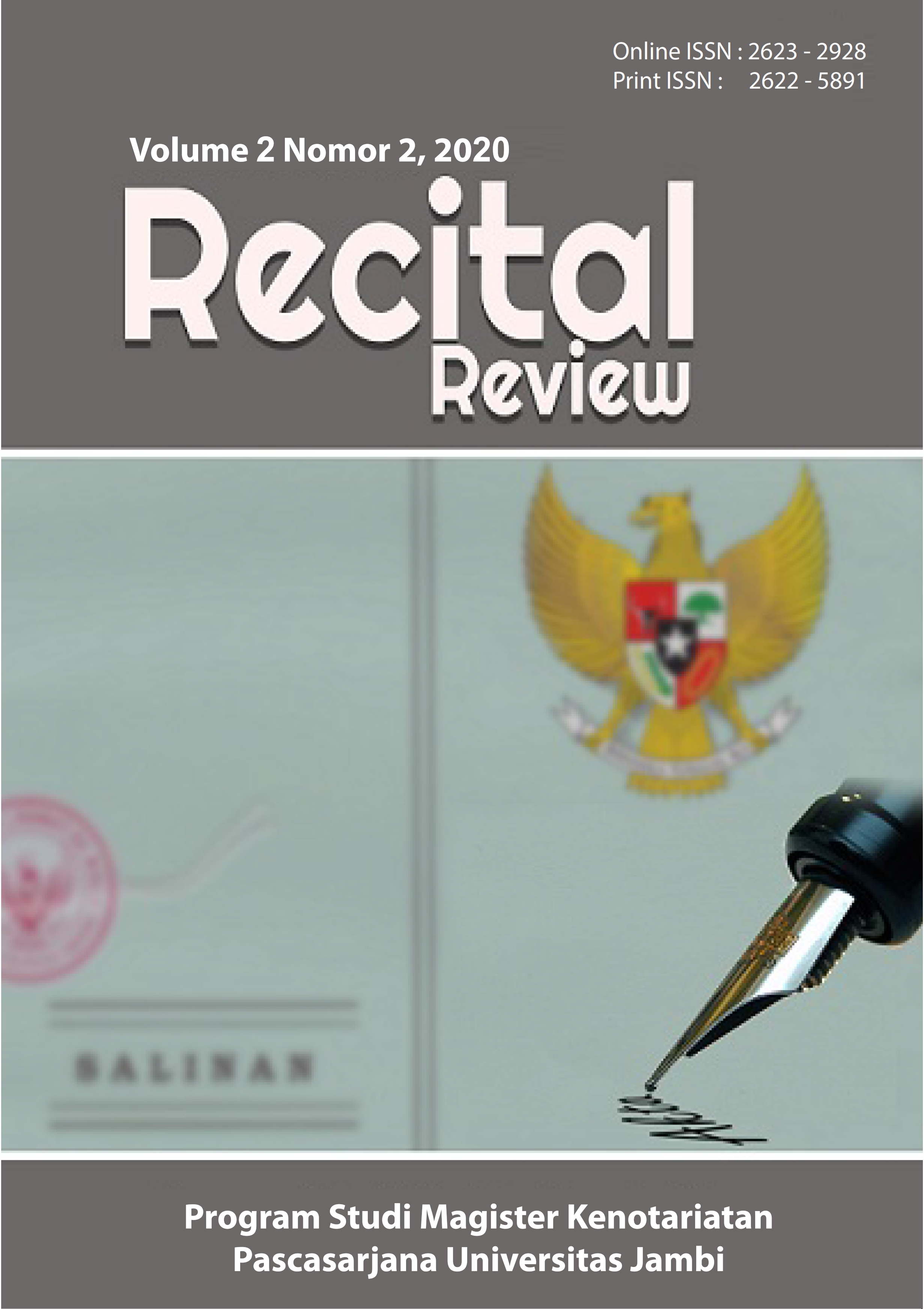Keabsahan Akta PPAT Yang Tidak Ditandatangani Para Saksi (Studi Putusan PN. No.16/Pdt.G/2015/Pn.Krg)
DOI:
https://doi.org/10.22437/rr.v2i2.9589Abstract
ABSTRACT
PPAT Deed is an authentic deed in the case of certain legal actions, especially in the case of transfer of land rights from one party to another party. An authentic deed is a deed made by an authorized official for that, in the place where the deed was made and the format is in accordance with the provisions of the legislation in force. The authentic PPAT deed must be read in front of the parties, and signed by the witnesses and PPAT. The legal standing of witness in the PPAT authentic deed is as an instrument witness who witnessed and knew the making of the PPAT deed and also as evidence to strengthen the PPAT deed was made. If there is a legal problem with the PPAT deed, the instrumentair witness who signed the PPAT deed can be asked for information relating to the implementation of the PPAT deed, including information about the presence of the parties who signed the PPAT deed before the PPAT and the witnesses. The problem in this research is how the legal arrangement of witnesses in the PPAT deed, How is the legal effect on the PPAT deed whose signature was carried out in the presence of two witnesses and How is the legal analysis considered by the Panel of Judges in the Karanganyar District Court Decision No. 16 / Pdt.G / 2015 / PN.Krg.
This type of research is empirical juridical research, in which the approach to the problem is carried out by reviewing the implementation of PPAT obligations based on the applicable laws and regulations in this case are Articles 21 and 22, PP No. 24 of 2016 concerning amendments to PP No. 37 of 1998 concerning PPAT position regulations and this research was also supported by conducting direct interviews with 3 PPAT people whose working area was in Medan City.
The results of the study stated that the legal arrangements regarding witnesses in the PPAT deed contained in Articles 21 and 22, PP No. 24 of 2016 concerning amendments to PP No. 37 of 1998 concerning PPAT position regulations, Article 18 paragraphs 3, 4 and 5 of the regulation of the State Minister for Agrarian Affairs / Head of the National Land Agency (BPN) Number 1 of 2006 concerning Provisions for Implementing Government Regulation Number 37 of 1998 concerning PPAT Position Regulations, Article 1895-1912 Civil Code in the description of the criteria for witnesses recognized in making the PPAT deed and Article 37 PP No. 24 of 1997 concerning land registration, the legal consequence of the PPAT deed which was signed before two witnesses was that the PPAT deed was degraded to a deed under the hand, because it contained a formal legal flaw and the legal analysis of the Judge Panel's consideration in the Karanganyar District Court Decision No. 16 / Pdt.G / 2015 / PN.Krg which states that the PPAT has committed acts against the law and the authentic deed has been degraded to a deed under the hand.
Keywords: PPAT Law, PPAT Deed, and the Witness Position
Downloads
Downloads
Published
How to Cite
Issue
Section
License
The Authors(s) retain copyrights of the Article published on Recital Review. However, before publishing, it is required to obtain written confirmation from Author(s) in order to ensure the originality (Author Statement of Originality). The statement is to be signed by at least one of the authors who have obtained the assent of the co-author(s) where applicable. This work licensed under a Creative Commons Attribution 4.0 International License). All writings published in this journal are personal views of the authors and do not represent the views of this journal and the author's affiliated institutions.Â






